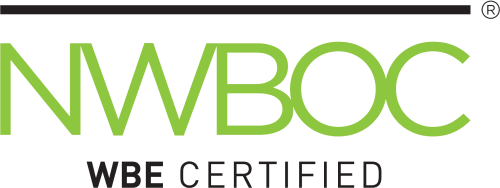Ongoing layoffs, however, could trigger an uptick in burnout
Arlington, Va., March 6, 2023 – Levels of employee burnout among the U.S. workforce remain high but are trending downward since the early days of the COVID-19 pandemic. Nearly half (46 percent) of American employees say they are burned out from their jobs, according to new Eagle Hill Consulting research. Burnout has fallen slightly since last year (49 percent in August 2022) and more substantially since the early months of the pandemic (58 percent in August 2020). Younger workers (51 percent) and women (48 percent) continue to report higher levels of burnout, although their levels also have dipped.
As for the top sources of burnout, workers say it’s their workload at 52 percent, which is up from 48 percent in August 2022. Staffing shortages follows at 44 percent. Nearly three-fourths of workers (71 percent) say a four-day work week would alleviate stress, followed by increased flexibility (66 percent).
These findings are from the 2023 Eagle Hill Consulting Workforce Burnout Survey conducted by Ipsos from February 9-13, 2023. The survey included 1,001 respondents from a random sample of employees across the U.S.
“While worker stress levels are trending downward, employers should not be complacent in addressing employee burnout,” said Melissa Jezior, president and chief executive officer of Eagle Hill Consulting. “Still, nearly half of the workforce reports burnout, and that is far too high for organizations that seek optimal performance and retention of their top talent. When employees are tired and stressed, you can bet they’ll either underperform or look for another job.”
“Employers should be cognizant that the current wave of employee layoffs could trigger an uptick in burnout. We know that staffing shortages have been a major source of worker burnout. In fact, we asked employees how staff shortages impact their workload, and 83 percent of workers said it’s covering the workload for un-filled positions. That number could rise in the coming months given that layoffs often create more work for those who remain on the job,” Jezior cautioned.
“There are actions employers can take to address burnout, according to employees. It can be allowing more flexibility to decreasing the workload. It’s critically important for employers to dig in to understand exactly what is causing burnout among their workers to properly diagnose and address the problem. Our research shows that workers are comfortable talking about burnout, and those conversations are essential,” Jezior said.
The survey’s key findings are as follows:
- When asked how staff shortages are impacting their workload, 82 percent of workers said it’s covering the workload for un-filled positions, 37 percent said it’s helping others learn their job, 39 percent said it’s training new hires, and 28 percent said it’s recruiting and interviewing new hires.
- Most employees who report burnout (62 percent) feel comfortable telling their manager or employer they feel burned out.
- The top causes of burnout include workload (53 percent), staff shortages (44 percent) juggling personal and professional lives (41 percent), a lack of communication and support (39 percent), and time pressures (38 percent).
- When asked how to reduce burnout, 71 percent of workers said a four-day work week would help. Other solutions included increased flexibility (66 percent), decreased workload (65 percent), better health and wellness benefits (60 percent), working from home (58 percent), reduced administrative burdens (55 percent), more on-site amenities (51 percent), and the ability to relocate or work from multiple locations (41 percent).
- The research also signals that despite layoffs and economic turmoil, a substantial share of the workforce (30 percent) plans to leave their job in the next 12 months.
Eagle Hill Consulting LLC is a woman-owned business that provides unconventional management consulting services in the areas of Strategy & Performance, Talent, and Change. The company’s expertise in delivering innovative solutions to unique challenges spans across the private, public, and nonprofit sectors. A leading authority on employee sentiment, Eagle Hill is headquartered in the Washington, D.C. metropolitan area, with employees across the U.S. and offices in Boston and Seattle. More information is available at www.eaglehillconsulting.com.
Media Contact: Susan Nealon | 703.229.8600 | snealon@eaglehillconsulting.com | @WeAreEagleHill

